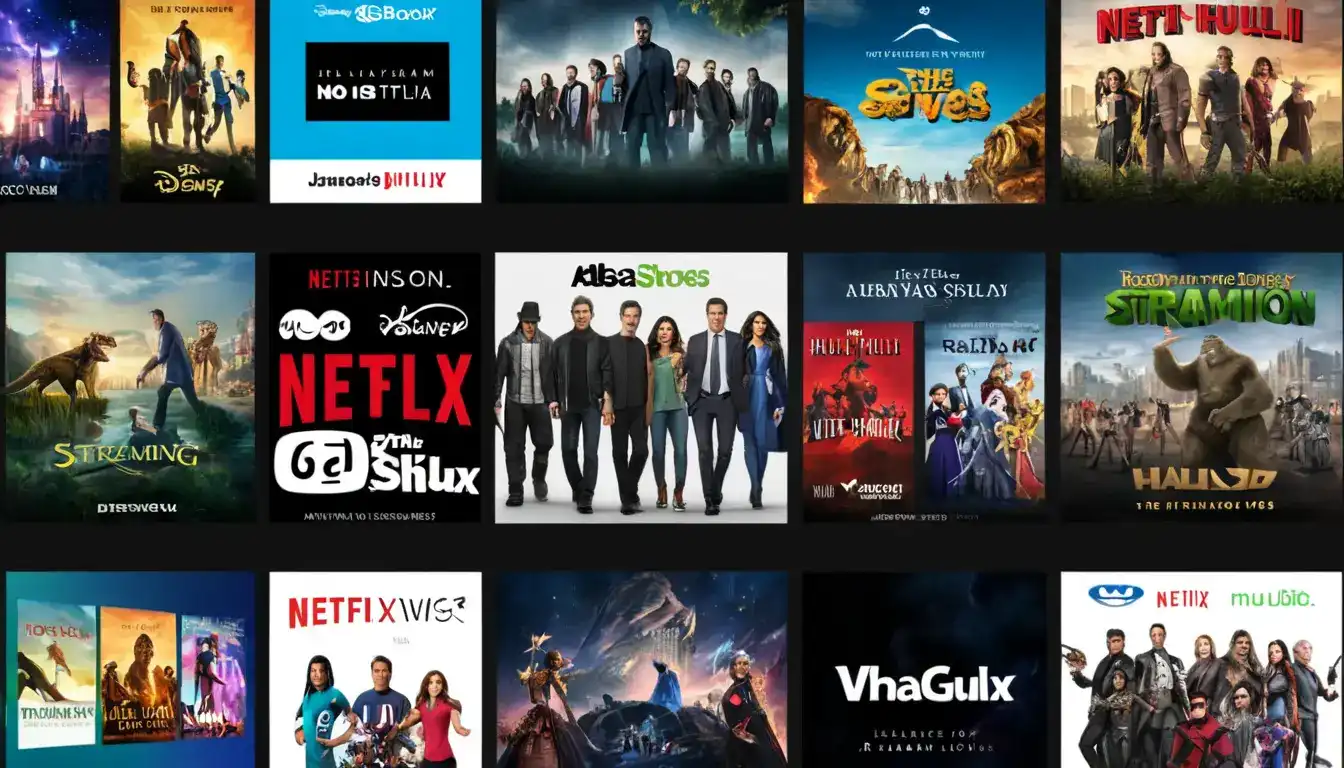Find Your Next Great Business Idea
Emily Willis

Photo: Find Your Next Great Business Idea
Find Your Next Great Business Idea: A Comprehensive Guide to Entrepreneurial Discovery
The journey of entrepreneurship often begins with a single, compelling idea. Yet, for many aspiring business owners, finding that "aha!" moment can feel like searching for a needle in a haystack. The truth is, great business ideas aren't always born from sudden epiphanies; more often, they emerge from a structured process of observation, problem-solving, and strategic thinking. This article will guide you through a comprehensive framework to uncover, evaluate, and refine your next great business idea, ensuring it has the potential for real-world success.
Why the Right Idea Matters More Than Just Any Idea
Before diving into idea generation, it's crucial to understand that not all ideas are created equal. A "great" business idea isn't merely novel; it's one that addresses a genuine market need, offers a unique value proposition, and possesses the potential for profitability and scalability. Many new entrepreneurs, fueled by passion, jump into ventures without thoroughly researching their target audience, competitors, or market trends, leading to wasted resources and missed opportunities.
A well-chosen business idea acts as the foundation for your entire venture. It impacts everything from your business model and marketing strategy to your long-term growth trajectory. A strong idea, validated by market demand, instills confidence not only in you but also in potential investors, crowdfunders, and banks. Conversely, a weak or unvalidated idea can lead to significant financial challenges and even failure.
Unearthing Inspiration: Where to Look for Business Opportunities
The world is brimming with potential business ideas if you know where to look. Inspiration often lies in plain sight, embedded within everyday experiences and societal shifts.
1. Solve Problems You or Others Face
One of the most potent sources of business ideas is identifying problems that need solutions. Successful businesses often emerge from addressing issues people face daily.
- Personal Pain Points: Think about frustrations in your own life or work. Is there a product or service you wish existed? For example, if you consistently struggle to find reliable pet sitters, a business offering vetted, on-demand pet care might be a viable solution.
- Observing Others' Struggles: Pay attention to the complaints of friends, family, and colleagues. What inconveniences do they encounter? What tasks do they find tedious or difficult?
- Industry Gaps: Within your current profession or a field you're familiar with, are there inefficiencies, outdated practices, or underserved customer segments? Could you offer a better, faster, or more affordable solution?
2. Leverage Your Passions, Skills, and Expertise
Your unique background, talents, and interests can be a powerful springboard for a business idea. Starting from your personal experience can help you identify market gaps you can fill.
- What You Love: What activities do you genuinely enjoy? Could a hobby be monetized? For instance, if you love baking, a specialty bakery or an online course on advanced baking techniques could be a path.,
- What You're Good At: What skills have you honed through education or work experience? Are you an expert in graphic design, social media management, or financial planning? These skills can form the basis of a consulting service or agency.,,
- Credentials and Knowledge: If you have professional certifications (e.g., CPA, personal trainer), consider how you can offer those services independently.
3. Spot Emerging Trends
Keeping an eye on societal, technological, and economic trends can reveal burgeoning opportunities.
- Technological Advancements: AI, blockchain, virtual reality, and sustainable technologies are constantly creating new possibilities. Could you develop a platform using AI for content creation or a sustainable product using new biomaterials?
- Demographic Shifts: Changes in population age, location, or lifestyle create new demands. An aging population might need more home care services, while a growing remote workforce could benefit from co-working spaces or productivity tools.
- Cultural and Social Shifts: The rise of the "creator economy," increased environmental consciousness, or a focus on health and wellness can inspire businesses ranging from digital product creation to eco-friendly retail.,
Structured Approaches to Business Idea Generation
Beyond passive observation, several structured techniques can help you actively generate and refine business ideas.
1. Brainstorming and Mind Mapping
These classic techniques encourage free-flowing thought without immediate judgment.,
- Brainstorming: Gather a group (or work solo) and list every idea that comes to mind related to a problem or trend. The goal is quantity over quality initially.
- Mind Mapping: Start with a central concept (e.g., "problems for busy parents") and branch out with related ideas, using keywords and images. This helps visualize connections and stimulate deeper insights.,
2. The SCAMPER Method
SCAMPER is an acronym for Substitute, Combine, Adapt, Modify (Magnify/Minify), Put to another use, Eliminate, and Reverse (Rearrange).,, Apply these prompts to an existing product, service, or industry to spark new ideas:
- Substitute: What can be replaced? (e.g., physical books with e-books)
- Combine: What elements can be merged? (e.g., coffee shop + bookstore)
- Adapt: What can be adjusted to fit a new context? (e.g., ride-sharing model adapted for delivery)
- Modify (Magnify/Minify): What can be changed, made bigger, or smaller? (e.g., micro-apartments, oversized apparel)
- Put to Another Use: How can something be used differently? (e.g., old shipping containers as homes)
- Eliminate: What can be removed or simplified? (e.g., subscription boxes eliminating shopping trips)
- Reverse/Rearrange: What if you do the opposite or change the order? (e.g., customers design their own products)
3. The "5 Whys" Technique
This method, often used in problem-solving, can also uncover core needs that lead to business ideas. Ask "why" five times to drill down to the root cause of a problem.
- Example: "People don't eat healthy."
- Why? "It's too expensive."
- Why? "Fresh ingredients spoil quickly, leading to waste."
- Why? "People buy too much or don't have time to cook daily."
- Why? "They need convenient, affordable, healthy meal solutions."
- Why? "Existing options aren't tailored to individual dietary needs or are too generic."
- Business Idea: A personalized meal kit service focusing on portion control and extended shelf life of ingredients.
Validating Your Business Idea: Is There a Real Market?
Having a compelling idea is just the first step. The next, and arguably most critical, is validation. This process determines if there's a genuine need for your product or service in your target market and whether people are willing to pay for it.,, Skipping market research is one of the biggest mistakes new business owners make.,
1. Define Your Target Market
Before you can validate, you need to know who you're trying to help. Create a hypothesis about your ideal customer:
- Who are they? (Demographics: age, location, income)
- What are their interests and behaviors?
- What are their specific pain points or needs that your idea addresses?,
2. Research the Market and Competition
- Market Analysis: Understand the size of your target market and the industry you'll operate in. Are there enough potential customers?,
- Competitor Analysis: Identify who else is trying to solve this problem. What are their strengths and weaknesses? How can your offering be better or different (your unique value proposition)?,, Look for gaps in their offerings or areas where they fall short.
- Trend Tracking: Are there favorable trends supporting your idea's growth?
3. Talk to Potential Customers (Customer Validation Interviews)
This is arguably the most crucial step. Directly engaging with your target audience provides invaluable feedback.
- Interviews: Conduct one-on-one conversations. Ask open-ended questions about their motivations, preferences, current solutions, and willingness to pay for your proposed solution.,
- Surveys and Focus Groups: For broader insights, use online surveys or small focus groups to gather feedback on your concept.
- Listen Actively: Be open to feedback, even if it challenges your initial assumptions. Customers should be engaged and excited about your solution.
4. Test Your Idea and Assumptions
- Minimum Viable Product (MVP): Create the simplest version of your product or service that still delivers core value. This could be a landing page, a basic prototype, or a manual service.,
- Pilot Programs: Offer your product or service to a small group of early adopters to gather real-world feedback and identify areas for improvement.
- Pre-sales/Waitlists: Gauge demand by seeing if people are willing to sign up for a waitlist or even make a small pre-payment. This is strong validation.
Refining and Iterating Your Business Idea
Validation is not a one-time event; it's an ongoing process. Based on the feedback and data you collect, you'll likely need to refine and iterate your business idea.
1. Pivot or Persevere
Be prepared to adjust your
Latest ✨
View AllRevolutionize your learning! Data analytics is the future of education, enabling personalized paths & unlocking individual potential.
Emily Willis
Cloud computing is essential for modern businesses, offering cost savings, scalability, and improved collaboration. Implementing cloud computing requires careful planning to ensure safety and efficiency. Tips for safe and efficient implementation include conducting a needs assessment, choosing the right cloud service model, prioritizing security, planning for data migration, optimizing costs, training your team, implementing backup and recovery solutions, monitoring performance, planning for scalability, and staying updated with industry trends.
Emily Willis
effective leadership in a constantly changing world and explores the traits and habits of inspiring leaders, both historical and contemporary. It highlights the key lessons from leaders such as Nelson Mandela, Martin Luther King Jr., Jacinda Ardern, Elon Musk, and Malala Yousafzai.
Emily Willis
Customer feedback is a goldmine for business growth. Learn how leveraging insights enhances products, builds loyalty, and keeps you competitive.
Emily Willis
Business
View All
June 9, 2025
Cloud Computing for Small BusinessUnlock growth & efficiency! Discover how cloud computing empowers small businesses with cost savings & agility in the digital age.
Emily Willis

June 9, 2025
Customer Retention Strategies That WorkUnlock lasting success! Learn proven customer retention strategies to build loyalty, reduce churn, and boost your business growth.
Emily Willis

June 8, 2025
Strategic Planning for Long-Term WinsChart your course to enduring success! This article demystifies strategic planning, offering an actionable framework for long-term wins and sustainable growth.
Emily Willis
Economy
View AllBoost your business profits! Discover actionable strategies to maximize revenue and efficiently manage costs for sustainable growth.
Read MoreUnpack the 17 Sustainable Development Goals (SDGs): a global blueprint addressing poverty, climate change, and inequality for a sustainable future.
Read MoreThe COVID-19 pandemic has had a significant impact on the global economy, leading to market turmoil, disrupted supply chains, and widespread business closures. As countries slowly recover, there are questions about the future of the global economy. While there are signs of recovery, challenges such as rising inflation, uneven global recovery, labor market disruptions, and supply chain bottlenecks remain. To ensure a sustainable recovery, policymakers must continue to support vulnerable sectors, invest in education and reskilling, strengthen healthcare systems, promote supply chain resilience, address inequalities, and prioritize sustainability.
Read MoreEntertainment
View All
August 4, 2024
The Latest Music Trends, Artists Influencing Pop Culture, and How Digital Platforms Facilitate the Distribution of Music GloballyThe music industry is constantly changing due to consumer preferences, technology, and the influence of artists. Digital platforms have revolutionized music creation, distribution, and consumption, leading to genre fusion, the rise of independent artists, and collaborative projects. Influential artists like Billie Eilish, BTS, and Taylor Swift have shaped pop culture globally. Streaming services, social media, and direct-to-fan engagement have transformed music distribution. Digital platforms also promote cultural diversity and inclusivity, expand markets and revenue, and drive technological advancements. The industry is also focusing on sustainability and ethical practices. To succeed in the future, stakeholders must embrace digital transformation and champion inclusivity.
Emily Willis

August 4, 2024
The Evolution of Streaming Services Such as Netflix, Disney+, Hulu, and the Implications for the Traditional Entertainment IndustryThe rise of streaming services has revolutionized the entertainment industry, offering on-demand access to a vast library of content through internet-connected devices. Platforms like Netflix, Disney+, and Hulu have diversified their content libraries, reshaped consumer behavior, and challenged traditional distribution models. Technological advancements have enhanced streaming experiences, while economic and cultural implications have led to global market expansion and increased investment in original content production. The future of the streaming industry will be shaped by competition, convergence of media and technology, and the need for adaptation to changing consumer preferences. Embracing digital transformation and strategic partnerships will be crucial for stakeholders in navigating the evolving landscape of modern entertainment.
Emily Willis

August 5, 2024
Entertainment in Society: Social Impact, Cultural Influence, Economic ContributionsEntertainment is more than just a way to pass the time it has a significant impact on society, culture, and the economy. It promotes empathy, sparks conversations, and drives social change. It reflects and shapes cultural trends, while also preserving traditions. The entertainment industry generates jobs, contributes to economic growth, and drives technological innovation.
Emily Willis
Health
View Allsignificance of mental health awareness in today's fast-paced world. It discusses the importance of understanding mental health, breaking down stigma, and promoting positive mental health practices.
Emily Willis
Regular physical activity is crucial for maintaining long-term health and well-being. It has numerous benefits, including improving cardiovascular health, aiding in weight management, enhancing mental health, strengthening bones, boosting immune function, and promoting longevity.
Emily Willis
The healthcare landscape is being transformed by technological advancements, with telehealth and remote care providing convenient access to healthcare services. Artificial intelligence is revolutionizing diagnostics, personalized medicine, and drug discovery. Wearable technology is empowering patients to take control of their health.
Emily Willis
Trending 🔥
View All
1
2
3
4
6
7
8
9
10
Lifestyle



Sports
View AllAugust 5, 2024
Inclusive Playing Field: Creating a Welcoming and Accessible Sports Environment
Read MoreTechnology
View All
August 4, 2024
The Future of Artificial Intelligence: Opportunities and Challenges
opportunities and challenges presented by Artificial Intelligence (AI) in various sectors such as efficiency, customer experiences, healthcare, education, and economic growth. It highlights the need to address ethical considerations, job displacement, privacy issues, security risks, and regulatory challenges associated with AI.

August 5, 2024
Best AR Apps for Interior Design
Discover the top AR apps for interior design and transform your space with ease! From furniture placement to paint colors, these innovative tools will revolutionize the way you decorate, making your home design dreams a reality

August 5, 2024
Types of Cloud Computing Services Available
Cloud computing has become essential for modern businesses, offering services that streamline processes, reduce costs, and increase flexibility. Understanding the types of cloud computing services available, such as Infrastructure as a Service (IaaS), Platform as a Service (PaaS), and Software as a Service (SaaS), can help businesses make informed decisions.

August 5, 2024
Best AR Translation Apps Tested
Uncover the best AR translation apps on the market through our in-depth testing and reviews. From seamless voice conversations to real-world text translation, these apps will revolutionize the way you communicate across languages.

















